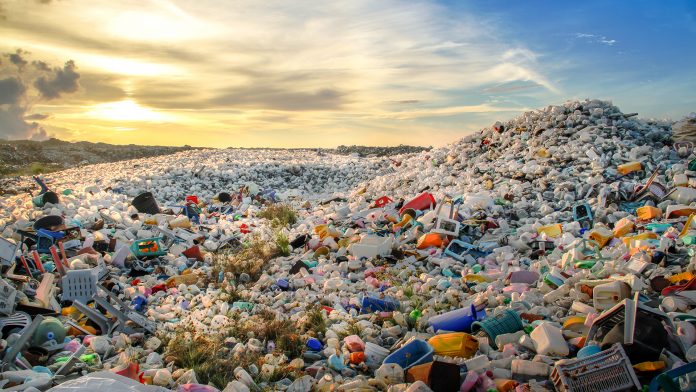The European Commission is determined to address the challenge of plastic waste, with a comprehensive strategy and targets that will transform Europe’s plastic waste management and help the transition to a circular economy.
The exponential growth of plastic use is of global environmental concern. It has led to a surge in plastic waste that our current waste management systems are struggling to manage.
Effective plastic waste management has emerged as a significant challenge and opportunity for innovation that requires a comprehensive and sustainable approach. The European Commission told The Innovation Platform about its plans to manage and mitigate plastic waste, the associated challenges and its progress towards ambitious policies and targets
What is the European Commission currently doing to manage plastic waste? What are key policies and how are they being implemented?
Plastics are an important material in our economy and daily lives. However, they can have serious negative effects on the environment and human health. The EU is taking action to tackle plastic pollution and marine litter to accelerate the transition to a circular and resource-efficient plastics economy. The EU Plastics Strategy was adopted in January 2018 to transform the way plastic products are designed, produced, used, and recycled in the EU. We want to improve plastic waste recycling through better design, curbing plastic waste and littering, and driving investments and innovation in the value chain.
The Commission adopted a Directive on Single Use Plastics to prevent and reduce the impact of single-use plastic products on the environment, which entered into force two years ago. We revised the Packaging and Packaging Waste Directive, which comes with clear requirements to improve on market failures and measures on waste prevention and reuse to be aligned with the waste hierarchy and the principles of the circular economy. It is about stimulating improvements in reuse and recycling, leading to an optimised coexistence of both and maximising environmental and economic performance.
We have also adopted a policy framework for sourcing, labelling and using bio-based, biodegradable, and compostable plastics. While bio-based, biodegradable and compostable plastics could be part of the solution, they are not a silver bullet and also present certain challenges.
This year, we also took further action to address the presence of microplastics in the environment. The Commission adopted measures to restrict microplastics intentionally added to products and a proposal for a Regulation on preventing plastic pellet losses to reduce microplastics pollution.
How has Europe’s approach to plastic waste management evolved in recent years?
Plastic waste is harmful to people’s health and to the environment. But it is also a resource. As we transition to a circular economy, this resource is a precious commodity.

In recent years, we have set ambitious targets for recycled content (e.g. 25% recycled content in PET bottles by 2025 under the Single-Use Plastics Directive) and incentivising reduction, reuse and recycling to move towards a circular plastics economy. But we are creating increasing quantities of plastic waste. We also can’t just ship it to third countries if that means it ends up in the ocean, or an illegal dumpsite, or gets burnt in the open air.
EU exports of plastic waste has considerably increased in recent decades, reaching 3.1 million tonnes in 2016. Most of the exports were destined to non-OECD countries. With the recent policy decisions in China and other countries in the South-East Asian region to halt or restrict the import of plastic waste, and the new rules under the Basel Convention, the overall volume of export of waste outside the EU has decreased and export has shifted to new destination countries, which were not significant players in the trade in plastic pollution before, such as Turkey.
Europe produces 78 million tonnes of plastics annually and 40% of this is used for packaging, mainly for food and drinks. Recent figures from Eurostat show a record increase in packaging waste – in 2021, each European generated 188.7kg of packaging waste, and 19% of this is plastic. That’s a whopping 35.9kg of plastic packaging waste per person, in just one year. What is more, over the last ten years, packaging waste increased by 24% but recycling only grew by 7%.
This trend is a matter of concern. The volume of plastic packaging generated could increase by 46% by 2030 and 86% by 2040. This demonstrates the urgent need to take action to prevent waste and make packaging sustainable. A recent Commission proposal on packaging and packaging waste is now being considered by the European Parliament and Council and sets targets to make all packaging in the EU recyclable by 2030 and a 15% packaging waste reduction by 2040. Our proposal aims to bring innovation in the way goods are delivered to us. This includes reuse and refill systems, where green and digital solutions can create many local jobs.
How is the Commission leading global efforts to tackle plastic pollution?
The EU strongly supports multilateral initiatives to deal with plastic pollution and worked closely with partners to achieve the adoption of international rules on global trade in plastic waste in 2019 in the Basel Convention.
The EU also pushed for the adoption of technical guidelines on the management of plastic waste, which were also agreed in the Basel Convention in May 2023. The EU is also in favour of the conclusion of a global instrument on plastic waste, which is currently being negotiated under the auspices of the United Nations. A positive outcome of the negotiations on a new legally binding instrument on plastic pollution remains a high priority for the EU.
At the Intergovernmental Negotiating Committee this spring in Paris, we managed to establish a solid mandate for the zero draft, which will be negotiated in the next meeting taking place next week in Kenya.
We want to see an instrument that can effectively address plastic pollution, through measures aimed at bringing down production, consumption, use and through environmentally sound plastic waste management.
What are the key challenges preventing facing effective plastic waste management and how can these be overcome?
Each sector and each value chain pose their own challenges for plastic waste management. We’re already working on addressing the different environmental and social issues of these value chains, including plastics. Effectively managing plastic packaging waste faces several challenges, which vary by region and context.
Different regions in the EU still lack efficient facilities for collecting, sorting, and processing plastic packaging waste. Without these facilities, recycling becomes difficult.
Moreover, plastic packaging waste is often contaminated with food residue, labels, and other materials, making it difficult to sort and recycle efficiently. The prevalence of single-use plastic packaging also contributes significantly to the plastic waste problem.
Another challenge is the recycling of certain packaging designs, such as the multilayer flexible composite packaging, which, although lighter, inhibits recycling. We need to consider the whole plastics value chain and increase circular design.
Lack of awareness and consumer confusion regarding waste disposal also affects the effectiveness of plastic packaging recycling. We need to change how we produce and consume and have more environmentally sustainable and circular products, for example, through our proposal for a new Ecodesign for Sustainable Products Regulation.
To overcome the obstacles and achieve effective plastic packaging waste management, a comprehensive approach is required, including developing recycling infrastructure, notably with investments, regulations, technological innovation, and industry collaboration.
Is the Commission on track to meet its targets regarding plastic waste? What does the future of plastic waste management look like?
The EU market for plastic waste recycling is currently undergoing a significant transition which should lead to a substantial increase in its capacity. Some Member States have planned investments to build more plastic recycling capacity as part of their Recovery and Resilience Plans.
This trend is driven by an ambitious policy and regulatory context set out at EU and Member States levels to boost recycling, such as targets and measures in Single-Use Plastics Directive.
The transition is also supported by important investments and technological progress made by the sector. In addition, a downward trend in waste exports has been observed since 2018, supported by the new rules on plastic waste from the Basel Convention and the decision of plastic waste importing countries to curb their imports.
Please note, this article will also appear in the sixteenth edition of our quarterly publication.









